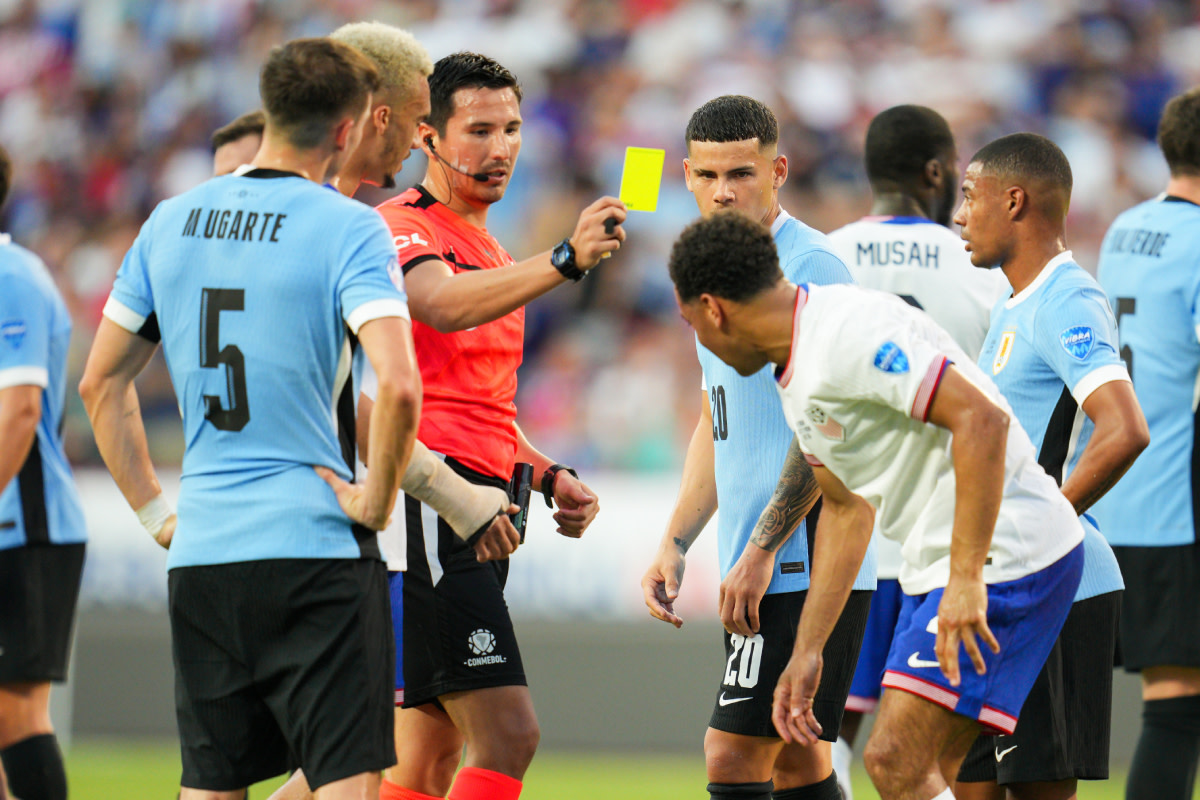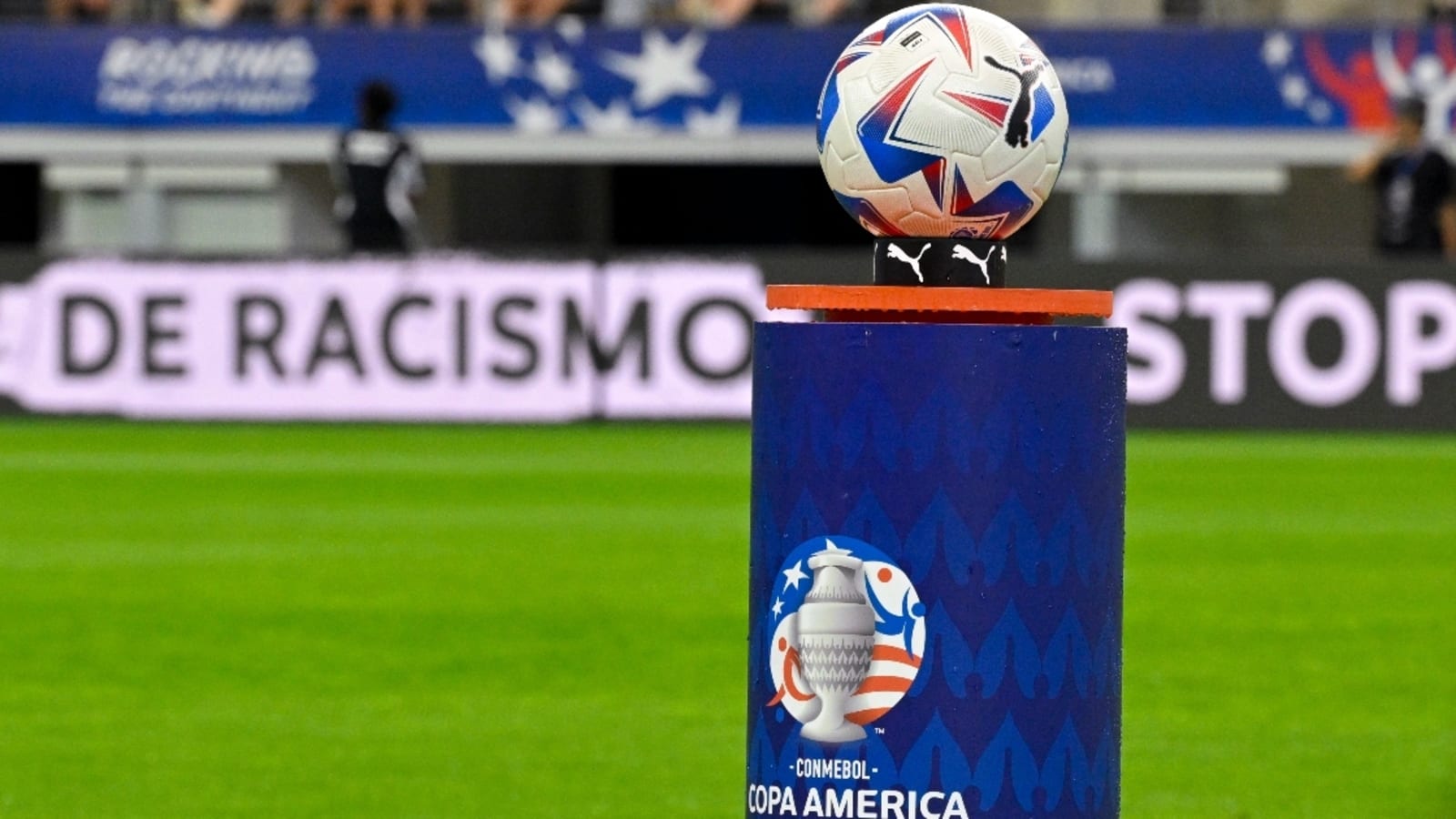Controversy Surrounding Officiating

Usa uruguay referee – The USA vs. Uruguay match was marred by several controversial officiating decisions that had a significant impact on the outcome of the game. One of the most contentious incidents occurred in the first half when Uruguay’s Luis Suarez appeared to bite the shoulder of USA’s Giorgio Chiellini. The referee did not see the incident, but Suarez was later banned for four months by FIFA.
Another controversial decision came in the second half when Uruguay was awarded a penalty kick after USA’s Clint Dempsey was adjudged to have fouled Edinson Cavani. The penalty was converted by Diego Forlan, giving Uruguay a 2-1 lead. Replays showed that Dempsey had not actually fouled Cavani, and the decision was widely criticized.
These are just two examples of the many controversial officiating decisions that have occurred in high-profile soccer matches in recent years. In 2010, England’s Frank Lampard was denied a clear goal against Germany in the World Cup, and in 2014, Brazil’s Neymar was controversially sent off in the World Cup semi-final against Germany.
Impact of Controversial Decisions
Controversial officiating decisions can have a significant impact on the outcome of soccer matches. In the USA vs. Uruguay match, the referee’s decision to award Uruguay a penalty kick had a direct impact on the result of the game. Uruguay went on to win the match 2-1, and the USA was eliminated from the tournament.
The USA-Uruguay refereeing controversy has sparked discussions about fairness in sports. While the outcome of the match remains a contentious topic, it’s important to remember the importance of sportsmanship. The men’s gymnastics team has demonstrated the true spirit of competition, setting an example of camaraderie and excellence.
However, the controversy surrounding the USA-Uruguay match highlights the need for transparent and impartial officiating to ensure the integrity of the game.
Controversial officiating decisions can also have a negative impact on the reputation of the sport. When fans see that referees are making biased or incompetent decisions, they may lose faith in the integrity of the game.
The tension is palpable as the whistle blows, signaling the start of the highly anticipated USA vs Uruguay match. The eyes of the world are fixed on the pitch, eagerly anticipating every move. If you’re among those who couldn’t secure tickets, fret not! You can catch all the action live on how to watch usa vs uruguay.
The skilled referee will ensure fair play throughout the match, leaving no room for doubt or controversy.
Impact on the Game
The referee’s decisions had a profound impact on the game, both in the immediate aftermath and in the long term.
In the short term, the decisions led to a flurry of controversy and debate. Players and fans alike were outraged by the referee’s perceived bias and incompetence. The game itself was marred by a sense of injustice, as both teams felt they had been wronged.
Long-term Implications, Usa uruguay referee
The long-term implications of the referee’s decisions are still being felt today. The reputation of the referee has been tarnished, and the sport itself has been damaged. The controversy surrounding the game has led to a loss of trust in the officiating process, and has made it difficult for fans to enjoy the game without a sense of skepticism.
Potential Rule Changes
In an effort to prevent similar controversies in the future, there have been calls for rule changes and other measures. Some have suggested that the use of video replay should be expanded, while others have called for the introduction of a new system of officiating. It remains to be seen whether any of these changes will be implemented, but it is clear that the controversy surrounding the game has led to a serious re-evaluation of the officiating process.
Cultural and Political Context: Usa Uruguay Referee

The rivalry between the United States and Uruguay in soccer dates back to the early 20th century. The two teams have met 11 times in official matches, with the United States holding a 5-3-3 record. The most famous match between the two teams was the 1930 FIFA World Cup semi-final, which the United States won 3-2.
The rivalry between the two teams is more than just a sporting one. It is also a reflection of the historical and political relationship between the two countries. The United States and Uruguay have a long history of cooperation and friendship, but there have also been periods of tension and conflict. The soccer rivalry between the two teams is often seen as a way to channel these tensions and express national pride.
Political and Social Factors
The referee’s decisions in the USA vs. Uruguay match may have been influenced by several political and social factors. First, the match was played in the United States, which gave the home team a psychological advantage. Second, the United States is a much larger and more powerful country than Uruguay, which may have led the referee to favor the American team.
Third, the match was played in a highly charged political atmosphere. The United States was in the midst of a presidential election, and the match was seen as a way to boost support for the incumbent president. The referee may have been aware of this political pressure and may have made decisions that he believed would favor the American team.
Broader Implications
The controversy surrounding the referee’s decisions in the USA vs. Uruguay match has had broader implications for relations between the two countries. The Uruguayan government has protested the referee’s decisions, and the incident has led to a diplomatic row between the two countries.
The controversy has also raised questions about the fairness of the FIFA World Cup. Some people believe that the referee’s decisions were biased in favor of the United States, and they have called for FIFA to take action to ensure that future matches are fair and impartial.